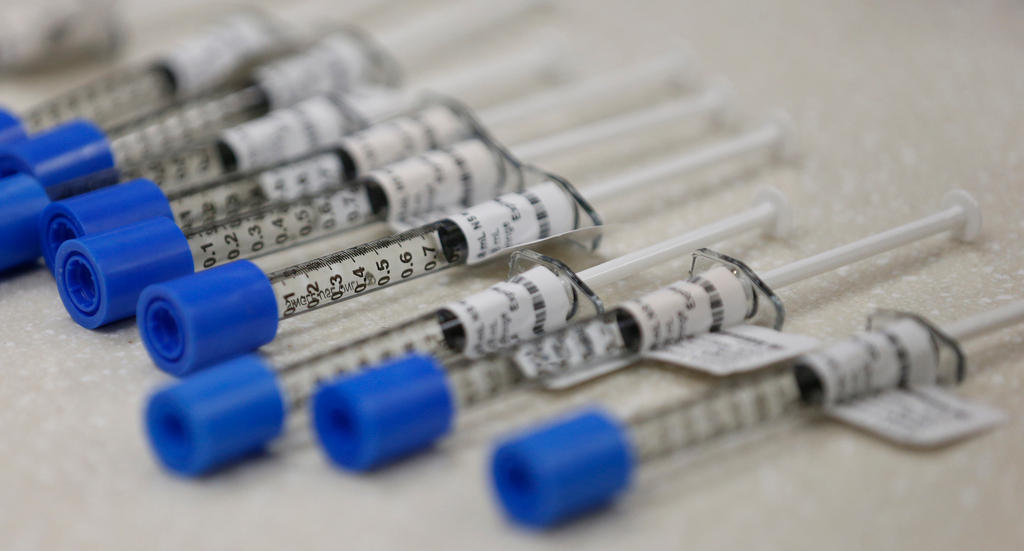
Swiss popping increasingly more pills

Half of all Swiss over 15 years old now take at least one type of medicine weekly – far more frequently than in the past.
Statistics released by the Federal Statistics Office (FSO) on Thursday mark a jump in the pill-popping habits of Swiss citizens over the past decades. In 1992, 38% of the population took at least one medicine per week; by 2017 it was 50%.
Users are more likely to be female (55% of women medicate weekly, compared with 45% of men) and elderly (84% for those over 75), the FSO said in a press statement on ThursdayExternal link.
As for types of medication, painkillers are the most frequent – almost one-quarter of the population had consumed them in the week before the 2017 survey, double the 1992 amount.
Next most popular were medicines for hypertension (16%), cholesterol levels (8%), and heart issues (7%). Psychoactive medication usage did not significantly increase, with the exception of anti-depressants.
+ Stay up-to-date on news about the health system in Switzerland
Though the reasons for the increasing figures are not fully known, the FSO did say that workplace stress could contribute to health and psychological problems. Some 20% of workers experience often or always stress on the job.
This said, the 22,134 Swiss who took part in the 2017 survey were largely happy with their situation: 85% reckoned themselves in good health, while 92% said their quality of life was good. Three-quarters said they were satisfied with their work.

More
Opioid painkiller prescriptions surge in Switzerland

In compliance with the JTI standards
More: SWI swissinfo.ch certified by the Journalism Trust Initiative






























You can find an overview of ongoing debates with our journalists here . Please join us!
If you want to start a conversation about a topic raised in this article or want to report factual errors, email us at english@swissinfo.ch.